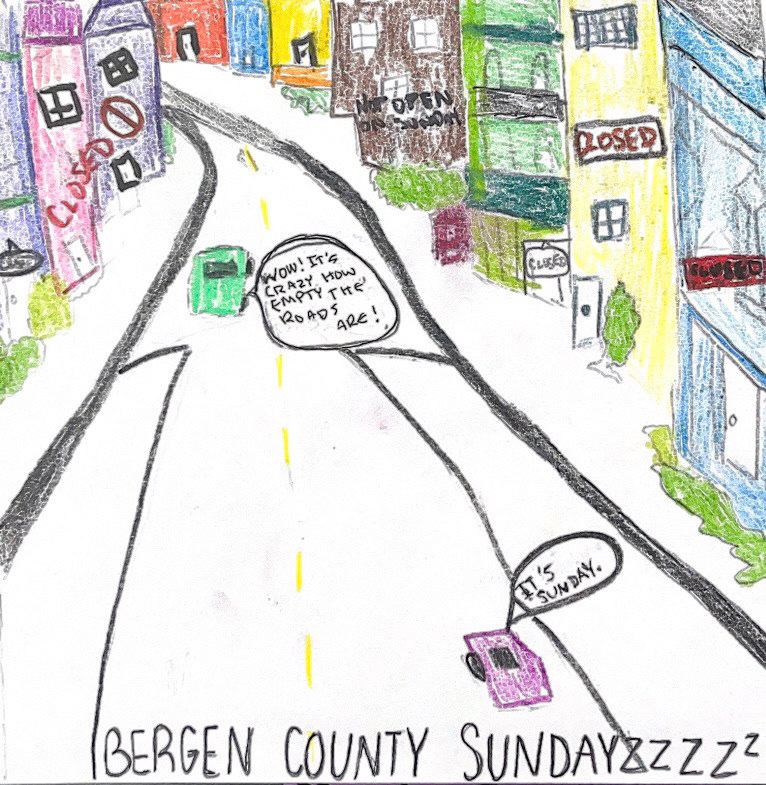Growing up in Bergen County has meant facing the burden of the blue laws every Sunday. It has meant forgetting it was Sunday and going to the mall hoping to buy new clothes but leaving empty-handed. It has also meant mindlessly driving down the Garden State Parkway with no honking horns and no bumper-to-bumper traffic.
Blue laws have existed since the 1700s. According to Cornell Law, they originated in England with the Puritans and were enacted to protect the Christian Sabbath and day of rest. In 1959, New Jersey changed the law so that each county could decide whether to enforce the laws. By 1985, 20 of the 21 counties had abolished blue laws; Bergen was the one that hadn’t.
In a secular country, people’s religion should not play a role in stores and businesses, but for Bergen County citizens, it does. Although the law does not explicitly state it, it promotes the Christian idea of the day of rest. The law might have made sense when everyone was religiously Christian, but in 2024, that is not the case. Even though about half of the Bergen County population is Christian, most are not religious. The website Only In Your State cited a 2014 Gallup study that stated that New Jersey was the 34th most religious state in the country, which is not very high. It also stated that only 34% of NJ residents consider themselves “very religious,” meaning most residents do not need Sunday as a religious day of rest.
On top of that, Bergen County is home to the largest Jewish population in New Jersey, according to The Virtual Jewish World. Jews observe Shabbat (their day of rest) every week from Friday evening through Saturday. On their day of rest, religious Jews are prohibited from activities such as driving, buying and selling, and cooking. As a result, Sunday becomes their only day for errands or shopping. Unfortunately for them, on Sundays, stores are not open, which could leave them in a real predicament.
The required rest day may have been relaxing years ago, but in today’s fast-paced world, blue laws seem to slow people down. People are impatient; when they want things, they want them immediately. With the click of a button, someone may be able to order what they need, but nothing compares to in-person shopping. You need to see an item in person to know what it would look like and how it would fit if it were clothing. On top of that, people tend to wait till the last minute before getting things done. Living in Bergen County and waiting till the last minute to shop can leave one in a real conundrum.
Bergen County is home to six major malls: Garden State Plaza, The Shops at Riverside, Paramus Park Mall, The Fashion Center Paramus, The Outlets at Bergen Town Center, and the American Dream. All six malls abide by blue laws, which could be a substantial opportunity for taxation. Having the second-largest mall in the U.S. in a county with strict blue laws is ironic. Although the whole American Dream isn’t closed on Sundays, all its retail stores are.
“Retail is losing out,” said John Holub, president of the New Jersey Retail Merchants Association, during a CNBC interview. “We are really behind the eight ball. Bergen County needs to enter the 21st century.”
Store owners should be allowed to choose whether or not they are open on Sundays. This would allow the best of both worlds: if some want to spend their Sundays resting, they should be able to do so, and if others want to spend their Sundays working, they also should be able to do so. The blue laws have been in place for far too long. It’s time for Bergen to join the other 20 counties and abolish this outdated and unfair legislation.















































































































































